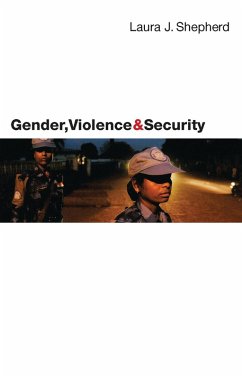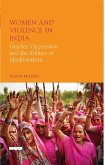How do understandings of the relationships between gender, violence, security and the international inform policy and practice in which these notions are central? What are the practical implications of basing policy on problematic discourses?
In this highly original poststructural feminist critique, the author maps the discursive terrains of institutions, both NGOs and the UN, which formulate and implement resolutions and guides of practice that affect gender issues in the context of international policy practices.
The author investigates UN Security Council Resolution 1325, passed in 2000 to address gender issues in conflict areas, in order to examine the discursive construction of security policy that takes gender seriously. In doing so, she argues that language is not merely descriptive of social/political reality but rather constitutive of it. Moving from concept to discourse, and in turn to practice, the author analyses the ways in which the resolution's discursive construction had an enormous influence over the practicalities of its implementation, and how the resulting tensions and inconsistencies in its construction contributed to its failures. The book argues for a re-conceptualisation of gendered violence in conjunction with security, in order to avoid partial and highly problematic understandings of their practical relationship.
Drawing together theoretical work on discourses of gender violence and international security, sexualised violence in war, gender and peace processes, and the domestic-international dichotomy with her own rigorous empirical investigation, the author develops a compelling discourse-theoretical analysis that promises to have far-reaching impact in both academic and policy environments.
In this highly original poststructural feminist critique, the author maps the discursive terrains of institutions, both NGOs and the UN, which formulate and implement resolutions and guides of practice that affect gender issues in the context of international policy practices.
The author investigates UN Security Council Resolution 1325, passed in 2000 to address gender issues in conflict areas, in order to examine the discursive construction of security policy that takes gender seriously. In doing so, she argues that language is not merely descriptive of social/political reality but rather constitutive of it. Moving from concept to discourse, and in turn to practice, the author analyses the ways in which the resolution's discursive construction had an enormous influence over the practicalities of its implementation, and how the resulting tensions and inconsistencies in its construction contributed to its failures. The book argues for a re-conceptualisation of gendered violence in conjunction with security, in order to avoid partial and highly problematic understandings of their practical relationship.
Drawing together theoretical work on discourses of gender violence and international security, sexualised violence in war, gender and peace processes, and the domestic-international dichotomy with her own rigorous empirical investigation, the author develops a compelling discourse-theoretical analysis that promises to have far-reaching impact in both academic and policy environments.









